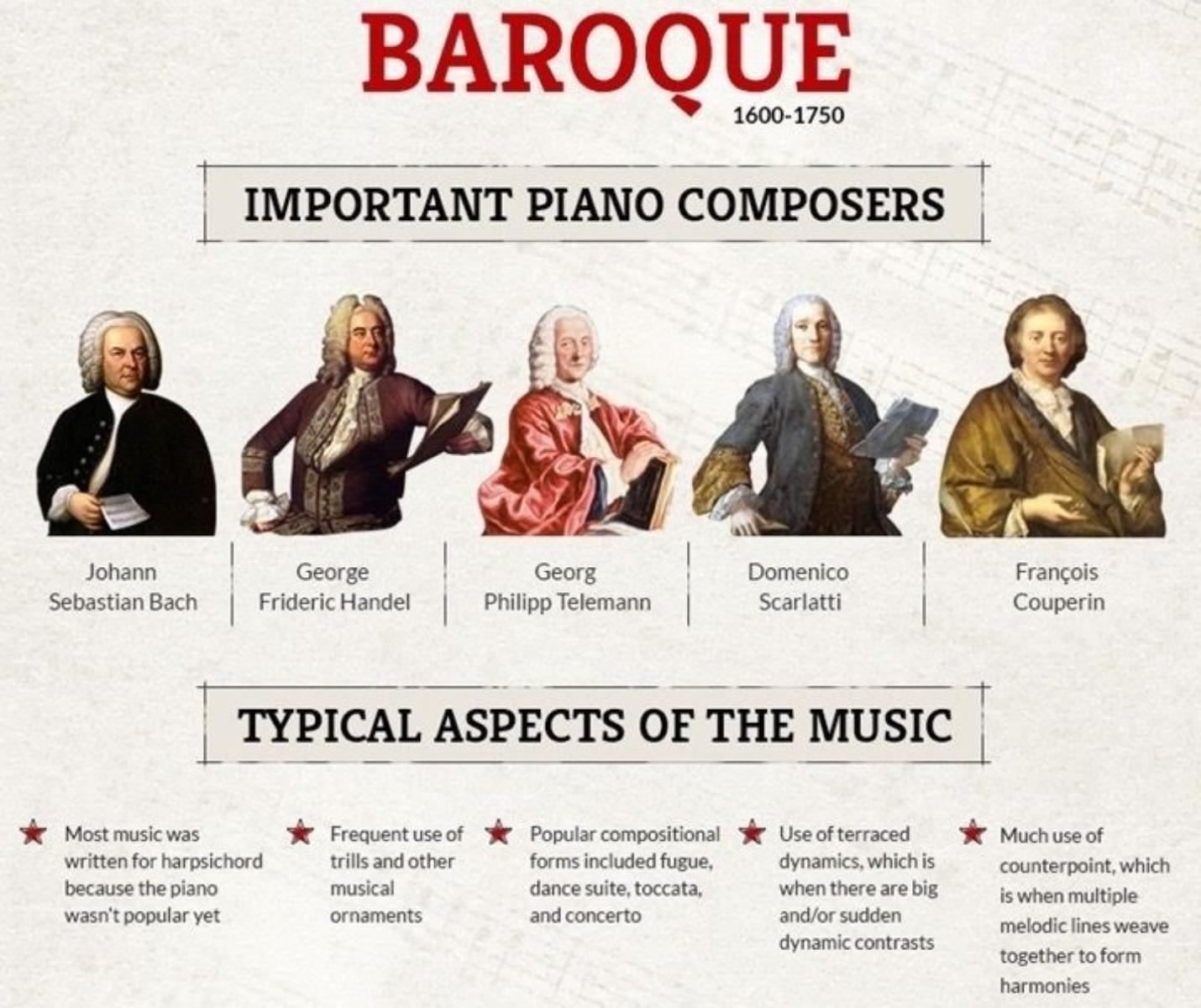The Baroque Era.
The transitioning period was the Baroque Era. Music composers started fusing embellishments with complex melodies as different instruments like the violin and cello came into being. Small orchestras started to form and two different forms of music arose-sonatas and concertos. Opera became popular as did new instruments like the pipe organ, harpsichord which added more depth to orchestras. Few of the best known composers of this period were Bach, Vivaldi, Handel, Corelli, Telemann, Couperin and Scarlatti.
13
53 reads
CURATED FROM
IDEAS CURATED BY
I owe my originality to a technical clusterfuck of emotions driven by angst and my dad's radio.
Western music has had a long list of musical development over the few hundred years and it's all thanks to our forefathers that the current Western music thrives, based on the vast expense of music theory. Some people coined this term as classical music.
“
Similar ideas to The Baroque Era.
The Classical Period (1730 - 1820)
Haydn and Mozart dominate the musical landscape of this period. Composers moved away from the polyphonic towards the homophonic, writing music that was simple and measured.
A key development is that of the Piano that replaced the Baroque harpsichord. Chamber music and orch...
The Baroque Period
Musical texture in the Baroque Period (16th century) was mostly polyphonic or homophonic, and as musical instruments were added, they became richer.
This includes Classical music tunes from the Romantic period as well as other innovative sounds from the United States and even the non-west...
The Romantic Period (1780 - 1880)
Beethoven made a notable change into the Romantic Era. His genius shaped the Romantic period by redefining many of the established musical conventions.
The era saw developments in the quality and range of instruments as composers allowed their deepest emotions and dreams t...
Read & Learn
20x Faster
without
deepstash
with
deepstash
with
deepstash
Personalized microlearning
—
100+ Learning Journeys
—
Access to 200,000+ ideas
—
Access to the mobile app
—
Unlimited idea saving
—
—
Unlimited history
—
—
Unlimited listening to ideas
—
—
Downloading & offline access
—
—
Supercharge your mind with one idea per day
Enter your email and spend 1 minute every day to learn something new.
I agree to receive email updates

